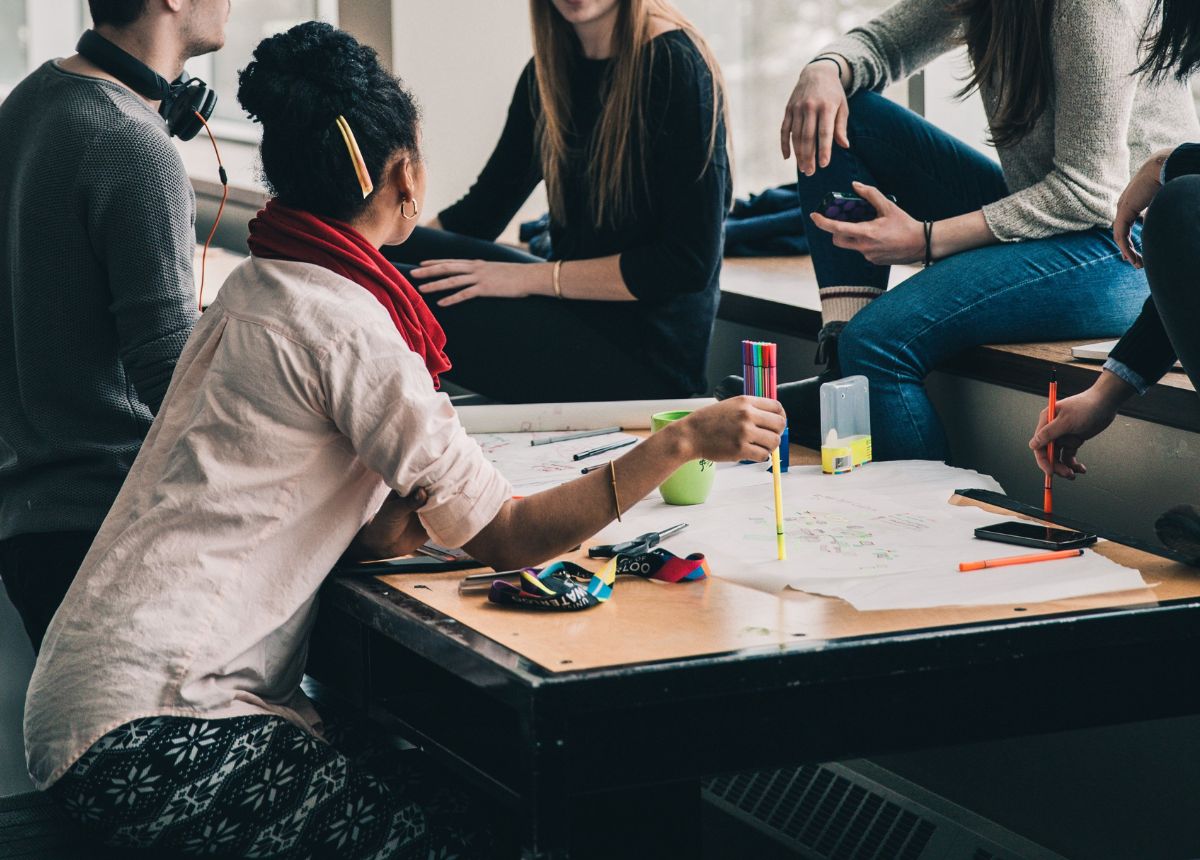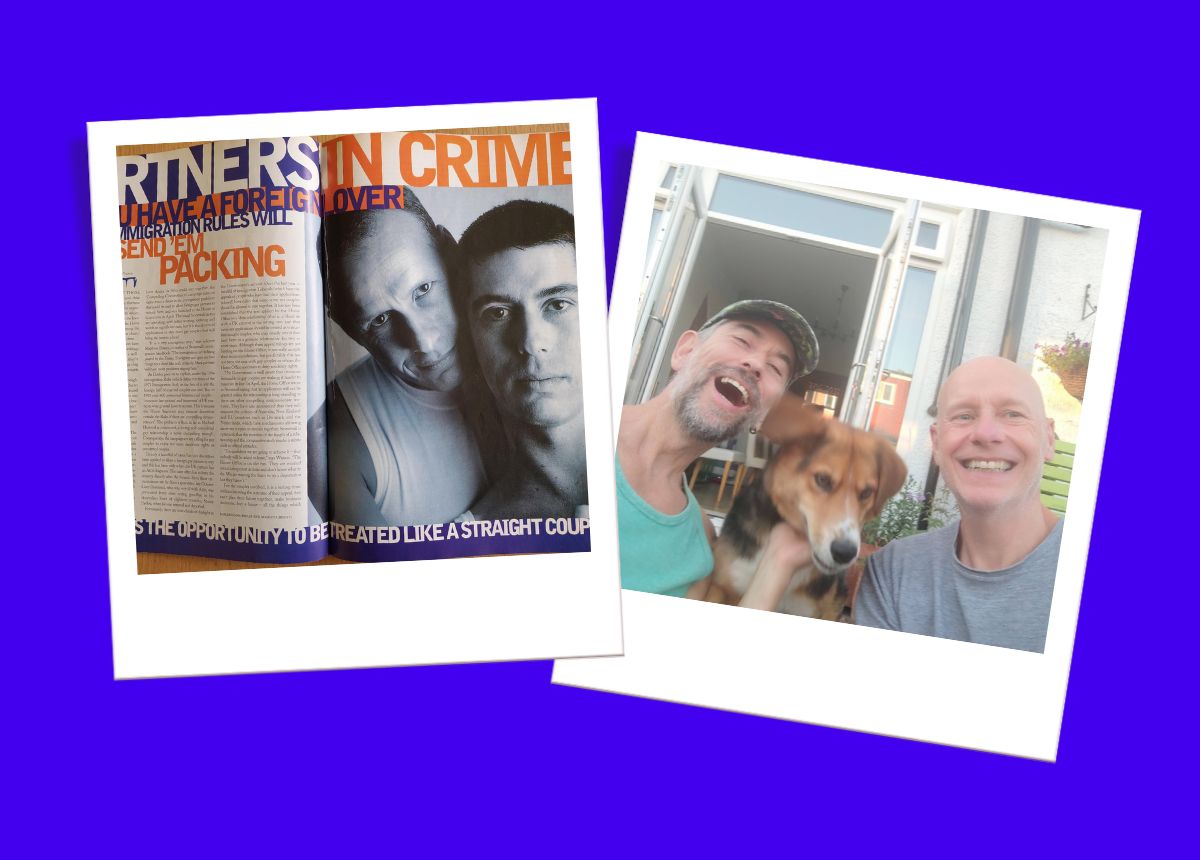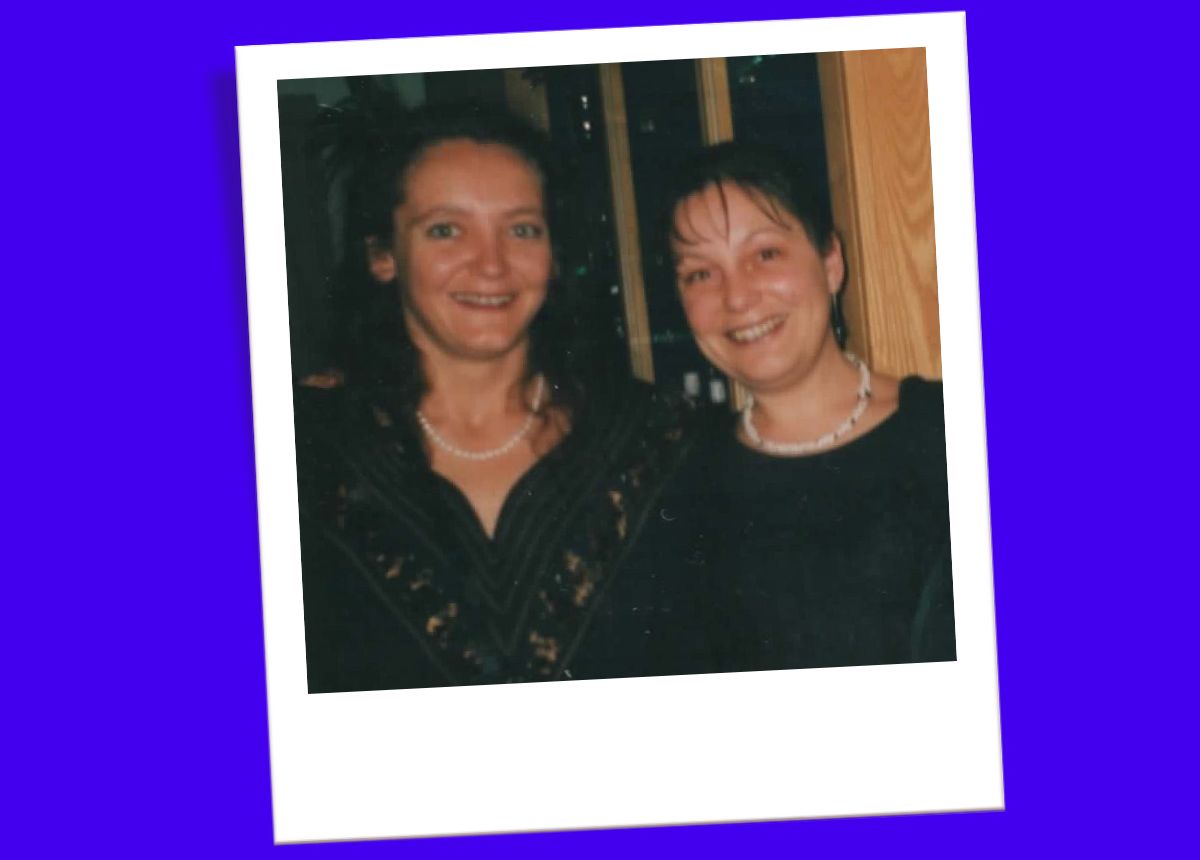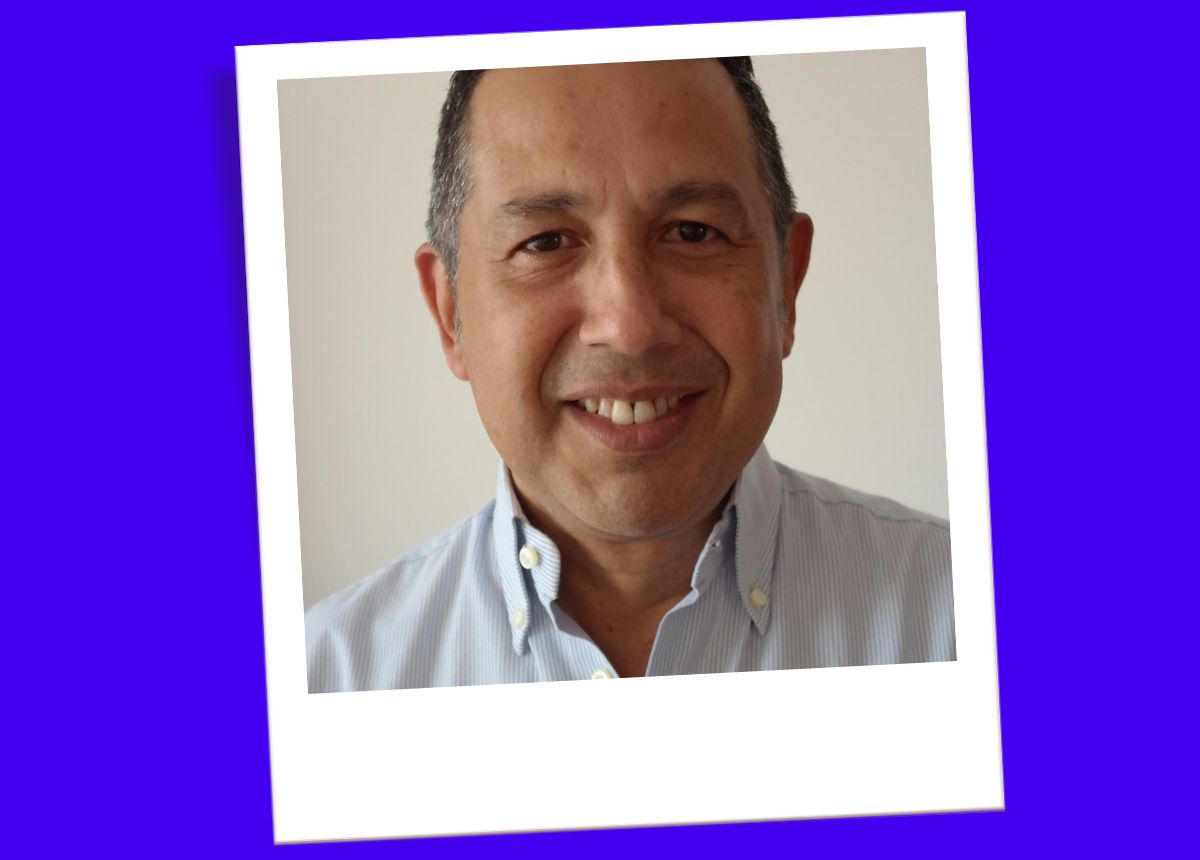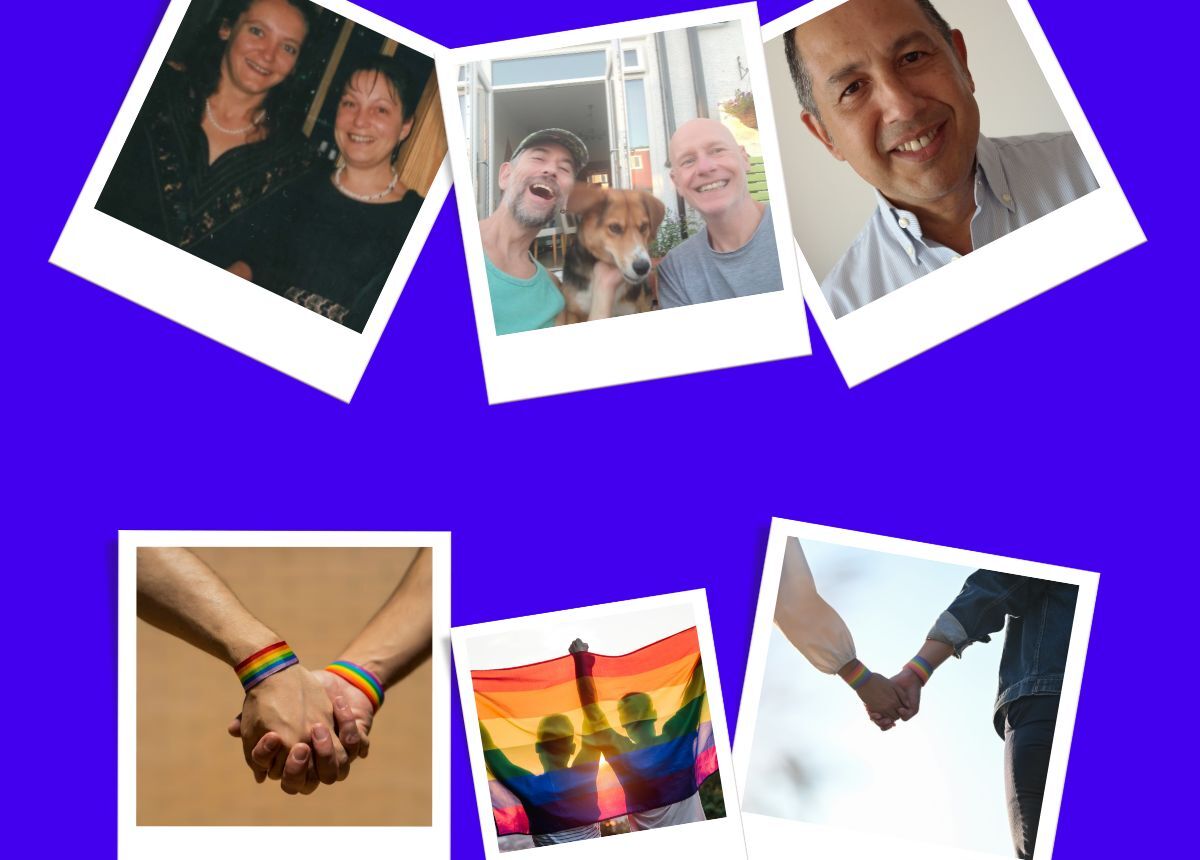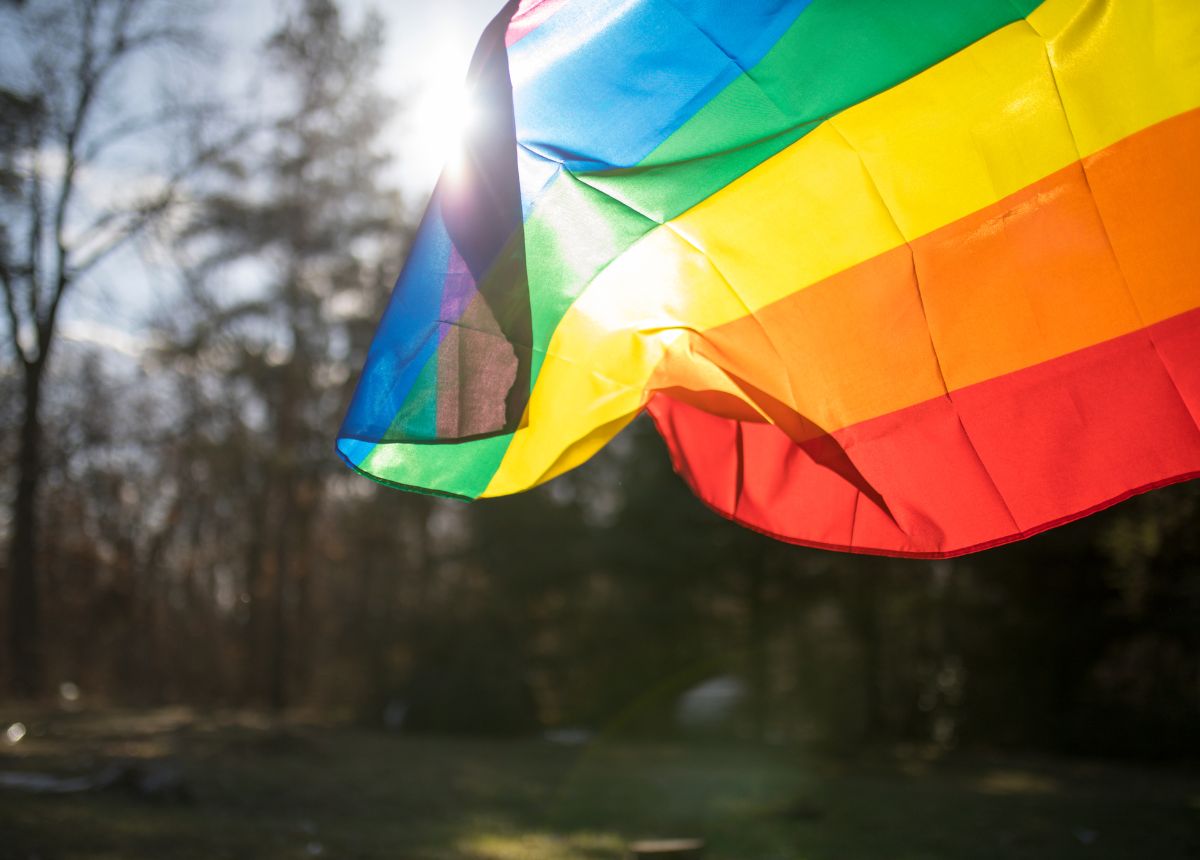Key highlights from 2022
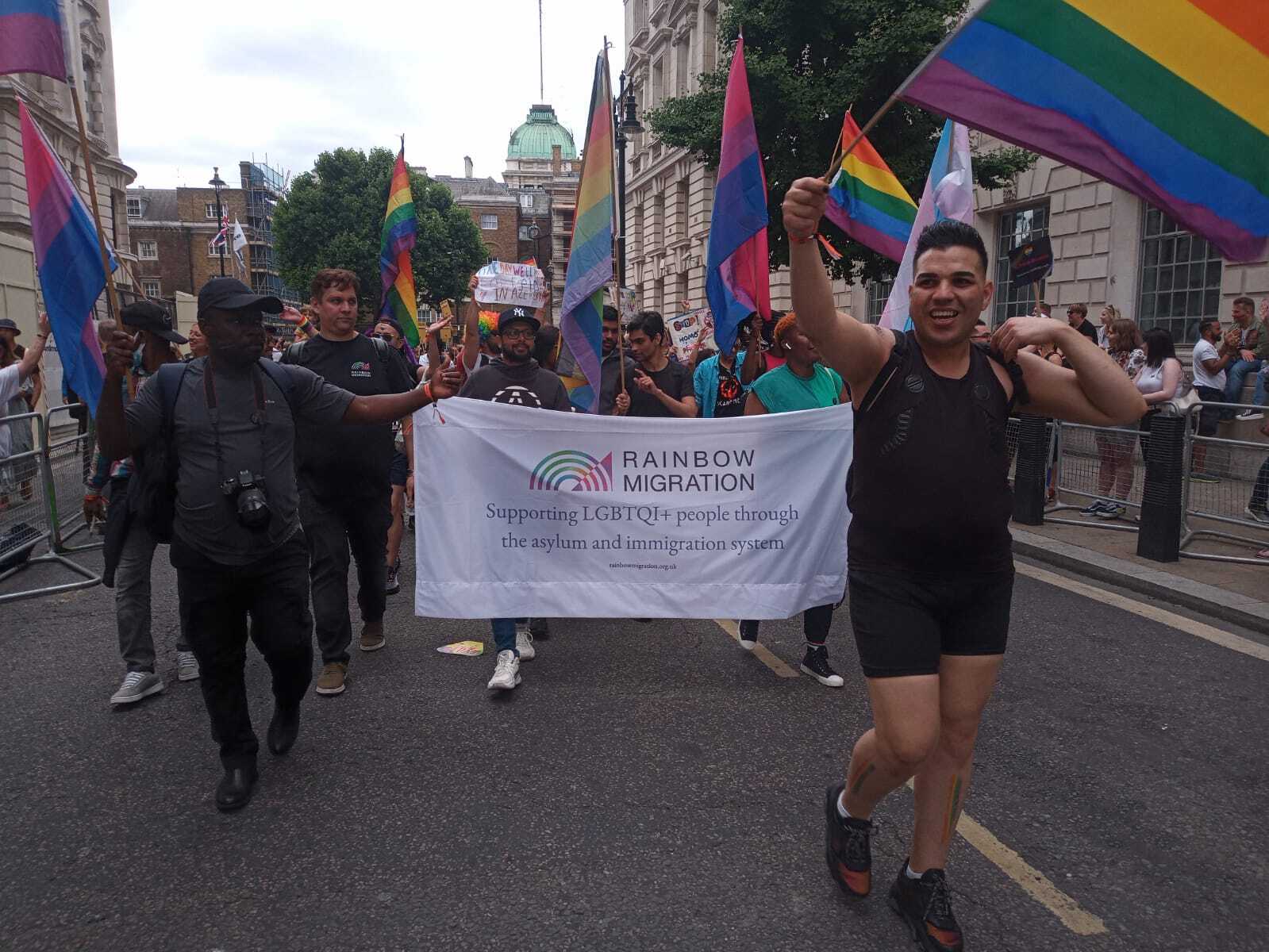
As we near the end of 2022, we wanted to share some key highlights from 2022 with you:
- Service users from countries such as Saudi Arabia, Brazil, Morocco, Egypt, and Zimbabwe have been granted asylum.
- We marched with 36 of our service users at Pride in London and attended Trans Pride London for the first time with 7 of our service users.
- We launched our No Pride in Detention campaign calling for an end to the detention of LGBTQI+ people. Over 3,000 people have signed our handraiser, and 19 organisations have joined in support.
- We consulted with service users on the development of our new strategy and 95% ranked the impact that Rainbow Migration has had on their life as an 8 out of 10 or higher.
- We won an Attitude Pride Award for our work!
We are proud to have achieved so much in 2022 against the backdrop of an increasingly challenging external environment. Egregious policies and legislation such as the Rwanda deal and the Nationality and Borders Act, which acutely affect LGBTQI+ people seeking asylum, have caused heightened fear and anxiety among our service users.
Our support services and specialist legal advice service have been a lifeline for many, helping LGBTQI+ people seeking asylum to reduce isolation, build support networks and succeed in the asylum process.
Here is an infographic that highlights the impact of the practical, emotional, and legal support we have provided to LGBTQI+ people seeking asylum in 2022:
“I aspire to create a community that can champion kindness and caring”
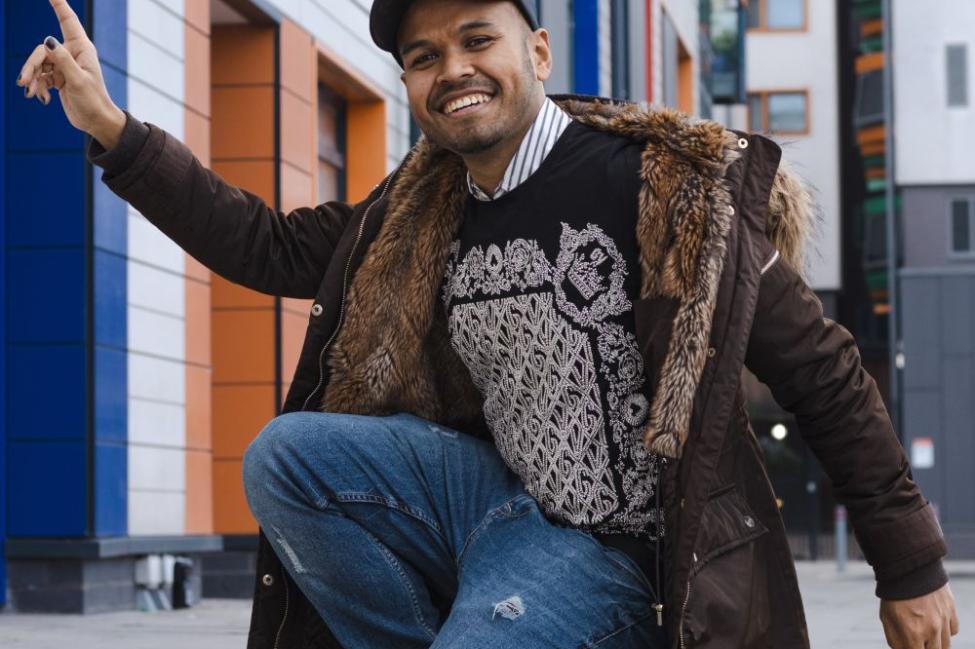
In the week leading up to International Migrants Day (18 December), we celebrate everyone who has moved across international borders, whether by choice or necessity.
This year we have partnered up with IOM and IMIX to highlight the voice of Zarith, one of the people that we are currently supporting and a lived experience ambassador of the International Migrants Day Ambassador Programme.
Zarith is a journalist, a poet, and a “wannabe astronaut”, as he describes himself. He came to the UK to start a new life, free from harm, and is currently awaiting a decision on whether this government will allow him to live in safety in the UK. If he is granted asylum, he hopes to continue his studies at University College London.
He recently told Pink News: “We are people. We have lots to give. We want to add value to the country that we are in, and I’m really sad if the UK is going to [regress] in terms of human rights and protection for asylum seekers. That would be a really dark day for the UK.”
Here is part of his blog:
From a boy who runs around the village half- naked with my mum’s veil, while playing at serving ‘regal ’ afternoon tea to becoming a young scientist at 13, it has been a global soul searching for me to fit in somewhere I can safely and finally call my ‘home’. Born in a tropical island in Malaysia, a multicultural home set a deeply rooted, dynamic and diverse foundation that would carry me in various parts of the world. Not much interested in ‘manly ’sports in my younger days, romantic English literature from the likes of Jane Austen & William Wordsworth took me to faraway misty English countryside, often fantasising of my knight in shining armour. Thanks to my sister, she also introduced me to classical music, and I demanded to learn to play piano and master a few languages.
As a chubby kid who loved a myriad of intercultural gastronomic delights, food has become central to one of my passions which is cooking. Having a beloved grandmother on my side who cooked almost every day, she lovingly hand-fed me simple, flavourful, home cooked meals. Having both of my parents who worked full time, my late grandmother was not only my source of inspiration but also the most altruistic soul who instilled in me bountiful gentleness, affection, empathy, and kindness to become the softhearted person that I am today. I could not thank her enough to be in my formative life to my mid teenage years. When she passed on, it was the biggest blow in my entire life as I felt as my wings had been clipped & my heart had been wrenched out of my ribcage. I remember reading her newspaper articles in her later years as she was unable to read due to her vision impairment, not knowing that I would become a journalist one day.
World Cup of Shame Appeal

Every week, we are immensely grateful to be approached by people that want to raise much needed money so that we can keep running vital services for LGBTQI+ people seeking safety here.
However, in the last few weeks we have made the difficult decision to turn down several kind offers of support to raise funds for us, as the activities would have also promoted the World Cup in Qatar. As much as we appreciate each and every generous offer, LGBTQI+ people are not safe in Qatar and this year’s World Cup is simply not aligned with our values of safety, integrity, belonging and respect.
Saying no to these contributions means less cash coming in during these increasingly difficult times. But our team will continue working regardless, to ensure LGBTQI+ people get the legal and emotional support they need while they go through a complex and often cruel asylum system.
A former service user said, “You bring us together, make us feel like we are all a family”. We want to continue bringing people together, but not at the expense of human rights.
We have created a ‘World Cup of Shame’ appeal in place of the fundraising proposals we have turned down for those of you who would like to support Rainbow Migration. Can you make a donation today and help us to continue supporting LGBTQI+ people seeking safety?
Could you be our next legal trustee?
**This opportunity has now closed**
Who are we looking for?
Rainbow Migration is looking for an asylum lawyer to join our board of trustees. You should be, or within the last 3 years have been, either a practicing solicitor, legal adviser or barrister, and have a strong interest in advancing the rights and interests of LGBTQI+ people who are seeking protection in the UK.
Trustees are required to participate fully in the governance of the charity. It would therefore be beneficial if you also bring other skills, knowledge or experience. Our current trustees have skills and experience covering lived experience of the asylum system, law (public law, human rights and property law), academia, communications, fundraising and finance.
We particularly encourage applications from people who have been through the UK asylum or immigration system, people of colour, disabled people, and LGBTQI+ people.
What will you be doing?
Being a trustee is a rewarding role. Trustees bring their expertise to shape Rainbow Migration’s strategy and direction, and help ensure Rainbow Migration remains the authoritative organisation on LGBTQI+ asylum and immigration. They have overall legal responsibility for the charity and make sure Rainbow Migration’s finances and resources are well used to implement our mission. They also play a role as ambassador for the organisation and its work. For more information, see here.
Rainbow Migration is developing its new multi-year strategy to meet the additional challenges presented to our service users by recent changes in law, policy and the economic environment. You will be joining the Board at an exciting time as we begin implementation of a new way forward to ensure LGBTQI+ fleeing persecution can rebuild their lives safely in the UK.
About Rainbow Migration
Rainbow Migration supports LGBTQI+ people through the asylum and immigration system, and influences policy and practice. We provide emotional and practical support for LGBTQI+ people seeking asylum, offer legal information and advice, and carry out campaigning, policy work and strategic litigation. We also train lawyers and other organisations working with LGBTQI+ people seeking asylum. We have a team of 14 full- and part-time staff, and volunteer lawyers delivering advice on partnership applications.
Our vision is a world where there is equality, dignity, respect and safety for all people in the expression of their sexual orientation or gender identity. Our values are:
- Safety: We believe everyone should be safe from persecution and safe to be themselves. We strive to create a safe workplace culture, and we place importance on the wellbeing of everyone involved with Rainbow Migration.
- Integrity: We are thorough and honest in everything we do, and we take responsibility for our actions. We want to be accountable to our communities and those who support us.
- Belonging: We welcome and include all LGBTQI+ people, and we celebrate and value their range of experience in terms of gender, religion, race, age, disability status and class. We try to remove obstacles to participation, champion equality and promote a sense of family or home through our services.
- Respect: We believe that every person is equal and deserves the same level of courtesy, care, and attention. We respect the rights, wishes and feelings of our service users, and campaign for their rights to be respected as they go through the asylum and immigration system.
At Rainbow Migration, we don’t just accept difference – we celebrate it, we support it, and we thrive on it. We’re proud to be an equal opportunity employer and we value diversity. We do not discriminate on the basis of race, religion, colour, national origin, gender, gender identity, sexual orientation, age, marital status, or disability status – simply put, we consider all qualified applicants, consistent with any legal requirements.
Time and location
Trustees meet in the evening between 6 to 9 times per year according to need. Attendance at other ad-hoc meetings, events (such as the annual general meeting), or relevant committee meetings is also expected. Preparation for the meetings involves a time commitment of 2 to 4 hours for detailed reading of papers provided several days in advance.
Meetings are usually held by Zoom. Where face-to-face meetings take place in London, travel costs for trustees based outside London will be reimbursed.
A few more details
Being a trustee is a voluntary position. Expenses incurred in relation to fulfilling trustee duties can be reimbursed e.g. travel. Training and ‘buddying up’ with an existing trustee can be provided to the successful candidate.
Rainbow Migration is a membership organisation. We require our trustees to become members (£20 a year, which can be waived for trustees in cases of financial hardship). Trustees can be co-opted by the Board but have to be confirmed by Rainbow Migration’s members at the next annual general meeting (AGM).
This position is open to people who have leave to remain in the UK or UK citizenship. We cannot accept applications from people who are currently seeking asylum or are under the age of 16. Candidates must not have been previously disqualified as a trustee or company director, have an undischarged bankruptcy or have unspent criminal convictions for an offence involving dishonesty or deception (such as fraud).
The successful applicant will be required at the point of conditional offer to disclose all unspent criminal records and subsequently to undergo a basic DBS check.
To apply
Please send your CV with a covering email explaining why you are applying to recruitment@rainbowmigration.org.uk by Tuesday 13 December at 10 am.
Shortlisted candidates will be invited to an informal interview (date TBC). The preferred candidate will then be invited to observe a board meeting so that both they and the organisation can feel confident that the role and organisation is right for them.
Privacy Notice: Your privacy and data protection
In order to recruit trustees, Rainbow Migration needs to store personal information (data) about all applicants. Rainbow Migration is registered as a “controller of personal data” under the Data Protection Act 2018 with the Information Commissioner. By applying for this role, you agree that we will keep the information on your CV and covering statement. Rainbow Migration keeps all personal information safely and securely, and does not share your information with anyone outside Rainbow Migration or any other organisation without your consent. Information is kept for the minimum period necessary which for CVs and covering statements for unsuccessful applicants is 12 months after the conclusion of the recruitment campaign.
“It was a very hard battle. We shouldn’t assume it couldn’t be taken away”
Philip and Augusto - 25th anniversary since the first positive recognition of same sex relationships in the UK
“Around 1993, I was living in London and working in the travel business. I was enjoying what London had to offer at that time. I met my partner, Augusto, in a club, and 30 years later, we are still together.
Augusto is from Colombia, and eventually he had to go back. We were concerned about how we would go about seeing how he could stay here for longer. I remember going to see Wesley Gryk in the summer of 1993. He said that the issue at the moment was that he (Augusto) was not in the country, so there was nothing we could do until he was back in the UK.
Augusto came back to the UK in Christmas, over the next year we started to consider how we could legalise his position, so we made contact with the Stonewall Immigration Group. Wesley Gryk told us that there was nothing within the [immigration] rules that enabled us to apply for residency based on our relationship. But he suggested we make the application (along with other couples) as opposite sex partners, and to see what happens. This was pushing the Home Office boundaries, and they kept pushing back. In early 1996 we had a call from Wesley saying that Augusto had been summoned to an interview under caution by the immigration service. At the conclusion of the interview Augusto was informed they were going to remove him from the country. Some months later we went to a Judicial Review on paper, a Judge considered our papers and we lost. To overcome this situation we had to go through another Judicial Review hearing in front of a judge. This time, there was a cost attached to the hearing. Our lawyer suggested that we applied for legal aid as Augusto wasn’t working. Interestingly we got turned down from legal aid because as a couple we had too much money. They told us that they didn't believe we were a couple, and didn't recognise us as such under immigration rules - yet the legal aid department were telling us they looked at our income as a couple. We found the money to pay for the hearing, and the day before the hearing the Home Office backed down and withdrew the application to have Augusto removed.
The Home office returned Augusto’s passport to allow him to travel to Colombia to see his ageing father, on his return to the UK immigration officer put an indefinite leave to remain stamp in his passport. There were further conversations and solicitors letters with the Home Office about this until finally at end of 1996, he got confirmation that he had been granted indefinite leave to remain.
The Unmarried Partners Concession was hugely significant both for us and the wider LGBTQI+ community. It was thanks to constant chiselling away the Home Office, that we could eventually persuade them. It was a very hard battle. We shouldn’t assume it couldn’t be taken away. Particularly at this current time.
We never thought about giving up the fight, there was no other solution. What else could we do? There are people all over the world that would like to have the opportunity, we were safe and not overly persecuted but we were treated unequally, which I suppose is a form of persecution.
We never thought about giving up the fight, there was no other solution.
It should be seen as a stepping stone and a broader societal gain. I’m not saying that further changes in legislation [Civil Partnership Act in 2004, Equal Marriage Act 2013] wouldn’t have happened, but they would have been slower.
We felt like we had a voice and we wanted our voice to be heard and we were going to make sure that happened. That’s not the case for everybody, not everybody can find the allies that we found at that time with Wesley and the Stonewall Immigration Group”.
“Sometimes you don’t choose your battles, they choose you, and that was one of those battles that chose us”
Darienne and Fiona - 25th anniversary since the first positive recognition of same sex relationships in the UK
Darienne: “I’m originally from South African and met Fiona, who is a British citizen, in Greece. We lived there for a while, I was working in a restaurant as a cook. After a number of years, Fiona wanted to come back to the UK to study here. I came back with her, but with my South African passport I couldn’t stay”.
Fiona: ”We actually didn’t know that she couldn’t stay(!). We imagined that there would be a process whereby she would be able to stay. I wrote to the Home Secretary and explained that I had this same sex partner and that we didn’t fit into the paperwork, naively asking what we could do. But there wasn’t any option. They said that when the visitor’s visa ran out she’d have to leave the country.
Both continue explaining their story: “At that point the Stonewall Immigration Group was starting to be formulated as a group, because it was right at the beginning, in 1993. I found out there were four other couples that were in a similar situation and we started meeting up. The Home Office had deported Darienne back to her country of origin, South Africa, and it was very difficult to bring her back to the UK and to be able to start the appeal process. Once she was back in the UK we started working our way up through the courts towards a Judicial Review, as the Stonewall legal team had decided our case was the most promising.
The more we got involved in the process, the more we thought there was absolutely no way that the government could get away with this. All they were offering us was deportation, despite the risk of immediate danger to LGBT people in South Africa at the time. We found out that the law permitted a man to bring in as many concubines as he wanted but people could not bring their same sex partner. We were really determined to fight this to the bitter end. Sometimes you don’t choose your battles, they choose you, and that was one of those battles that chose us.
The more we got involved in the process, the more we thought there was absolutely no way that the government could get away with this.
It looked likely that we were going to win the Judicial Review. The Guardian did a double page spread on our case, we had masses of support, and then 3 or 4 days before the judicial review was due, the Government made us an out-of-court offer. They said that if we dropped the Judicial Review they would grant us an individual settlement. Our legal team advised us to accept the deal, because winning wasn’t 100% certainty and everyone agreed we had done our bit by forcing the government to admit a Judicial Review was needed.
Although it took another 15 years to get to the point to have complete equal rights as a couple, the Unmarried Partners’ Concession was a hugely positive first step for all of us who fell in love with someone of the same gender, but a different nationality”.
“We realised that we were doing something that was worth the time”
25th anniversary since the first positive recognition of same sex relationships in the UK
Javier (above) and Bill were one of the couples who were part of the original Stonewall Immigration Group. The Home Office refused their first application in the early nineties, ignoring their argument that they were in the equivalent of a common law relationship. This should have entitled them to be treated as straight couples in similar situations. The concession ensured that, in straight relationships, the non-UK partner could be granted an initial one year period of leave to remain. This did not apply to same sex couples at the time.
“We did not think of ourselves as ‘exceptional’ or special at all. If anything, we always thought that as people, as couples, we had an inherent right to fight for this and be recognised. It was about time.”, explains Javier
“I arrived in the UK in 1987, I wanted to write my PHD thesis that I had started in Barcelona. I wanted to move to London and have the experience of a different culture. I enrolled as a free student in King’s College, which was called Centre for Intercultural Latin American Studies at that time. I got a boyfriend and when I realised that I was going to stay longer is when we decided to follow this [immigration] route.
I started working for the BBC World Service, but once the immigration process started I was no longer allowed to travel as a consequence of the legal process. On a personal level it was a complication, but also effected work. My boss eventually told me I wouldn't be able to develop professionally and that I could get the work contract to sort my situation. Of course it was incredibly tempting to have the chance to travel for work and pleasure. But at that time we were hooked on this immigration process, to leave it behind would not have been right, so we decided to continue.
We realised that we were doing something that was worth the time, the sacrifice (to use a big word!), but we were really happy to continue.
We started the process with our lawyer Wesley Gyrk. He was very generous and kindly offered his services for free. He helped us to put our case in a wider context, it started as a personal situation but then when you understand that it’s something a lot of people were sharing at the time and that there was potential to break some barriers, we realised that we were there for the long ride.
When we started, I was ignorant of the process because I assumed the British legal system had provisions for gay couples. Though it was the time of the Tory government led by Margaret Thatcher, the UK was still a very liberal society. But our lawyer told us "not only does it not exist, but we are under such an incredibly conservative government at the moment that I don’t think this is going to go through”.
When we finally got status we were thinking this is what should have been the case from the beginning. We had found the balance that had never been there. It was a sense of achieving normality. And even though we won [and the Concession was passed], I don’t remember it feeling like a triumph.
When we finally got status we were thinking this is what should have been the case from the beginning.
Societies in general tend to take for granted a lot of things that they enjoy in the present. Though we enjoy it today, it is the consequences of ongoing struggles through time. Ours was just one struggle, a continuation of many. If anything I do feel proud of being part of that past but to the younger generations I would say these are rights that a lot of people struggled to achieve, and what is happening today is telling us that many of these rights suddenly don’t necessarily seem to be sacrosanct and forever. We have to be aware as a community that attention is always going to be there, we cannot forget that there is a constant tension around these rights that we achieve.“
25 years since the first positive recognition of same sex relationships in the UK
The Unmarried Partners Concession made it possible for same sex couples to make an application for a partner of a British citizen to remain in the UK if they had lived together for four years. It paved the way to greater equality for same sex couples.
On the 10 October 1997, the Unmarried Partners Concession was announced, which recognised same sex relationships for the first time in British law.
From that moment on, LGB people wanting to remain together in the United Kingdom on the basis of their relationship were allowed to do so, as long as they had lived together at least for four years.
This concession overruled the previous Immigration Rule, by which the partner of a British LGB person had no right to live in the United Kingdom with the person they loved.
It was through years of campaigning for equal rights by Rainbow Migration, then known as the Stonewall Immigration Group, that Jack Straw, the then Shadow Home Secretary, committed to recognise same sex couples for immigration purposes should Labour win the next election.
In 1997, five months after the Labour Party won the election, the Concession was passed.
Thanks to continued campaigning, in 1999 the cohabitation period was reduced from four to two years. After the Unmarried Partners Concession became an Immigration Rule in October 2000, the Civil Partnership Act was passed in Parliament in November 2004. This meant sex same couples had finally achieved full legal immigration parity.
Javier’s story
Javier and his partner were one of the couples who were part of the original Stonewall Immigration Group. The Home Office refused their first application in the early nineties, ignoring their argument that they were in the equivalent of a common law relationship. This should have entitled them to be treated as straight couples in similar situations. The concession ensured that, in straight relationships, the foreign partner could be granted an initial one year period of leave to remain. This did not apply to same sex couples at the time.
As Javier recalls, “when we started this process, I assumed that the British legal system had provisions for gay couples, even though those were the years of Margaret Thatcher, I thought of the United Kingdom as a very liberal society”.
He and Bill continued fighting for years, but their case wasn’t resolved until the enactment of the Unmarried Partners Concession in 2000.
“Even though we won [and the Concession was passed], I don’t remember it feeling as a triumph. It was more like this is what it should have been since the beginning”, explains Javier. He emphasises, “societies in general tend to take for granted a lot of things that they enjoy in the present. Though we enjoy it today, it is the consequences of ongoing struggles through time. Ours was just one struggle, a continuation of many. If anything I do feel proud of being part of that past but to the younger generations I would say these are rights that a lot of people struggled to achieve”.
Suella Braverman’s plan will put LGBTQI+ people seeking asylum in even greater danger
Despite sector wide calls for the new Home Secretary, Suella Braverman, to distance herself from Priti Patel’s cruel legacy, today she has announced an even more inhuman plan.
In her speech at the Conservative Party conference, Suella Braverman has set out proposals to ban people crossing the Channel from claiming asylum here.
A little less than a year ago, the UK proudly announced the arrival of the first group of LGBTQI+ Afghans, 29 people, who were helped by the government to come here, so that they could live safely and with dignity. Since then, we at Rainbow Migration regularly receive messages from desperate LGBTQI+ people in the region, begging us to help them. There is very little that we can do as there are simply no official accessible routes for them to come here and claim asylum. Due to the lack of other options, the number of people from Afghanistan who arrive in the UK via the Channel has increased significantly.
People should not be punished because of this government’s failure to offer them a safe alternative, and we are filled with horror at the remarks made by the Home Secretary today that she intends to deny asylum, and therefore safety, to people fleeing the Taliban.
At Rainbow Migration we have assisted several people from Iran and Iraq who have arrived in the UK via the Channel this year. Again, there is no resettlement option on offer from the UK for LGBTQI+ people from either of these countries. People have the right to decide in which country they seek safety, a position that is supported by the UNHCR (see paragraph 3).
If there are no formal routes open and accessible to those who need them, then people will be forced to travel however they can in order to get here. A person is no less a refugee because they were unable to access a safe route to come here, and it is morally despicable to suggest otherwise.
Similarly, the attacks on the European Court of Human Rights are misguided. Most of the decisions to take people off the flight to Rwanda were made by the Home Office (see here: Q272), an acknowledgement by them that the individuals were never suitable to be sent to Rwanda in the first place, even under their own guidance.
It is disappointing to see the Home Secretary squander the opportunity to break with the dangerous, cruel and ineffective policies of her predecessor, and we urge her to reconsider and reverse her approach.
World Suicide Prevention Month: the mental health crisis in immigration detention
***Warning: The following article marks World Suicide Prevention Month, which takes place every September. As such it contains themes of death, self-harm and severe mental health issues. Please take care, and do not read on, if you might find this too difficult. If you are an LGBTQI+ person seeking asylum and would like to access emotional support, please contact us.
This World Suicide Prevention Month we want to shed light on the mental health crisis in immigration detention. People seeking asylum, or going through our immigration system, can be held in detention without warning, and without knowing when they will be released. Being taken away from friends and family, and held in prison-like conditions, significantly impacts a person’s physical and mental health. In fact, since 2000, 30 people have died by suicide whilst in immigration detention in the UK.
In Colnbrook detention centre there were 41 recorded incidents of self-harm and 14 people were under constant watch for self-harm between September 2021 and February 2022. 25% of the people held there in 2021-22 said they felt suicidal, and more than three quarters were depressed, according to a report by His Majesty’s Inspector of Prisons. That same report identified there had been insufficient safeguards against placing people who were suicidal in detention.
These problems are not new. In 2018, The Guardian reported that on average, 2 people per day attempt suicide whilst in immigration detention. In late 2020, after the government announced charter flights would remove people to other countries, the risk of suicide in immigration detention rose to “unprecedented levels” at Brooke House detention centre, according to its Independent Monitoring Board.
Current government policy is having a similar effect. Earlier this month, Medical Justice, an organisation which supports the health and legal rights of people in immigration detention, warned that this government’s policy to send people arriving in the UK to Rwanda is damaging people’s health whilst in detention. Their evidence shows the threat of removal has exacerbated anxiety, depression, and post-traumatic stress disorder, and caused fear, uncertainty, and loss of hope. It has also lessened some people’s resilience to existing trauma. For some, this means an increased likelihood of self-harm and suicide.
LGBTQI+ people in detention are especially at risk. Many will have fled persecution and are already trying to cope with experiences of trauma from their past. In detention, they are forced to relive that trauma and to do so completely alone, without specialist support. Many then experience LGBTQI-phobic bullying and abuse in detention, which compounds their existing trauma. Often, they try to hide that they are LGBTQI+ in order to stay safe. It’s reminiscent of the situation from which they have fled. This all has a huge impact on their mental health and can drive many to self-harm and suicide.
That these centres are particularly damaging for LGBTQI+ people, is highlighted in our joint report with Stonewall, No Safe Refuge. The people we spoke to stressed the deterioration of their mental health whilst in detention. Many self-harmed, couldn’t sleep, or stopped eating. Some attempted suicide and knew of other people in detention who died by suicide.
“I would have preferred to take my own life than be in here.
It is so painful to be stigmatised and unable to disclose my identity.
You would prefer to be anywhere than this cage of darkness.”
Mukasa from Uganda, No Safe Refuge
It is clear these centres are not safe for anyone. Being detained puts many people who are often already traumatised, at even greater risk of poor mental health and suicide. This is especially true for LGBTQI+ people for the reasons set out above.
Moreover, no-one should be held in immigration detention without knowing when they’ll be released. The uncertainty of indefinite detention is a huge part of what makes it so damaging. Research shows that mental health worsens the longer the period of detention. As the government’s own guidance states that 28 days is long enough to decide whether a person should be removed from the UK, it is wrong to detain anyone longer than this.
That’s why we’re campaigning for an end to LGBTQI+ detention and a time limit on all detention. You can support us now by signing your name here.
There is #NoPrideInDetention.

